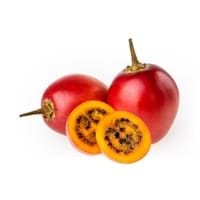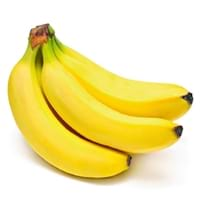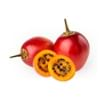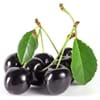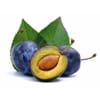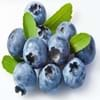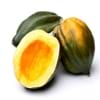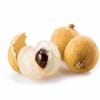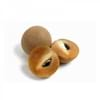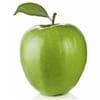Health Benefits
Cancer prevention, Improves eye vision, Prevents diabetes, Prevents high blood pressure
Cancer prevention, Diarrhea treatment, Muscle pain relief, Piles treatment, Prevents constipation, Skin cleansing, Ulcer treatment
General Benefits
Cures inflamed tonsils, Helps in weight loss, Maintains healthy cholesterol level
Controls blood pressure, Digestive aid, Maintains healthy cholesterol level, Strengthens bones
Skin Benefits
Anti-aging benefits, Protects skin from oxidative stress
Anti-aging benefits, Hydrates skin, Skin rejuvenation
Hair Benefits
Protects hair
Prevents hair loss, Shiny hair, Softening mask
Allergy Symptoms
Anaphylaxis, Coughing, Diarrhea, Eczema, Hives, Itching sensation in throat, Nausea, Skin Rashes, Runny nose, Sneezing, Swelling of mouth, tongue or lips, Vomiting, Wheezing
Abdominal pains, Decrease in blood pressure, Dizziness, Hives, Itching of mouth, Lightheadedness, Swelling, Swelling of mouth, tongue or lips, Weak or racing pulse, Wheezing
Side Effects
Heart burn
Headache, Intense headache, Tooth decay
Best Time to Eat
Along with meal, As a snack in the late afternoon, Don't consume at night and before bed, Don't eat after meal, Morning time (before lunch)
As a snack in the late afternoon, Don't consume at night and before bed, Eat the fresh ones, avoid mixing with any other foods, don't eat after meal.
Vitamin B5 (Pantothenic Acid)
Vitamin C (Ascorbic Acid)
Vitamin K (Phyllochinone)
Calories in Fresh Fruit with Peel
Not Available
Calories in Fresh Fruit without Peel
Calories in Frozen Form
Not Available
Type
Fruit vegetable
Berry, Tropical
Season
All seasons
All seasons
Varieties
Tamarillo bold gold, Tamarillo red beau, Tamarillo tango and Tamarillo teds red
Cavendish Bananas, Lady Finger Bananas, Pisang Raja, Williams Bananas and Cooking Bananas
Color
Orange, Red, Yellow
Green, Yellow
Inside Color
Creamy Yellow
White
Shape
Round
Curving Cylinder
Origin
South Africa
Papua New Guinea
Soil Type
Sandy loam, Well-drained
Well-drained
Climatic Conditions
Rainfall, Warm
Warm
Facts about
- Up until 1967, tamarillos were referred to as tree tomatoes.
- The name tamarillo is derived from Maori word 'tama' which means leadership and rillo from spanish word 'amarillo' which means yellow.
- As bananas contain potassium-40 which is radioactive isotope of potassium, bananas are radioactive.
- Bananas float in water.
- There are around 1000 varieties of bananas.
- Eating this fruit will cheer you up.
Top Producer
New Zealand
India
Other Countries
Australia, Chile, Colombia, Malaysia, Peru, Philippines
Brazil, Cameroon, China, Colombia, Ecuador, Ghana, Indonesia, Philippines, Uganda
Top Importer
United States of America
Europe
Top Exporter
New Zealand
Ecuador
Botanical Name
Solanum betaceum
Musa acuminata and Musa balbisiana
Synonym
tree tomato, genus Cyphomandra, Cyphomandra
Musa × dacca , Musa × sapidisiaca , Musa × sapientum
Subkingdom
Tracheobionta
Tracheobionta
Division
Magnoliophyta
Magnoliophyta
Class
Magnoliopsida
Liliopsida
Subclass
Asteridae
Liliidae
Order
Solanales
Zingiberales
Family
Solanaceae
Musaceae
Species
Solanum betaceum
M. acuminata , M. balbisiana
Generic Group
Nightshade
Banana
Difference Between Tamarillo and Banana
We might think that Tamarillo and Banana are similar with respect to nutritional value and health benefits. But the nutrient content of both fruits is different. Tamarillo and Banana Facts such as their taste, shape, color, and size are also distinct. The difference between Tamarillo and Banana is explained here.
The amount of calories in 100 gm of fresh Tamarillo and Banana with peel is Not Available and 95.29 kcal and the amount of calories without peel is 31.00 kcal and 89.00 kcal respectively. Thus, Tamarillo and Banana belong to Low Calorie Fruits and High Calorie Fruits category.These fruits might or might not differ with respect to their scientific classification. The order of Tamarillo and Banana is Solanales and Zingiberales respectively. Tamarillo belongs to Solanaceae family and Banana belongs to Musaceae family. Tamarillo belongs to Solanum genus of Solanum betaceum species and Banana belongs to Musa genus of M. acuminata , M. balbisiana species. Beings plants, both fruits belong to Plantae Kingdom.
